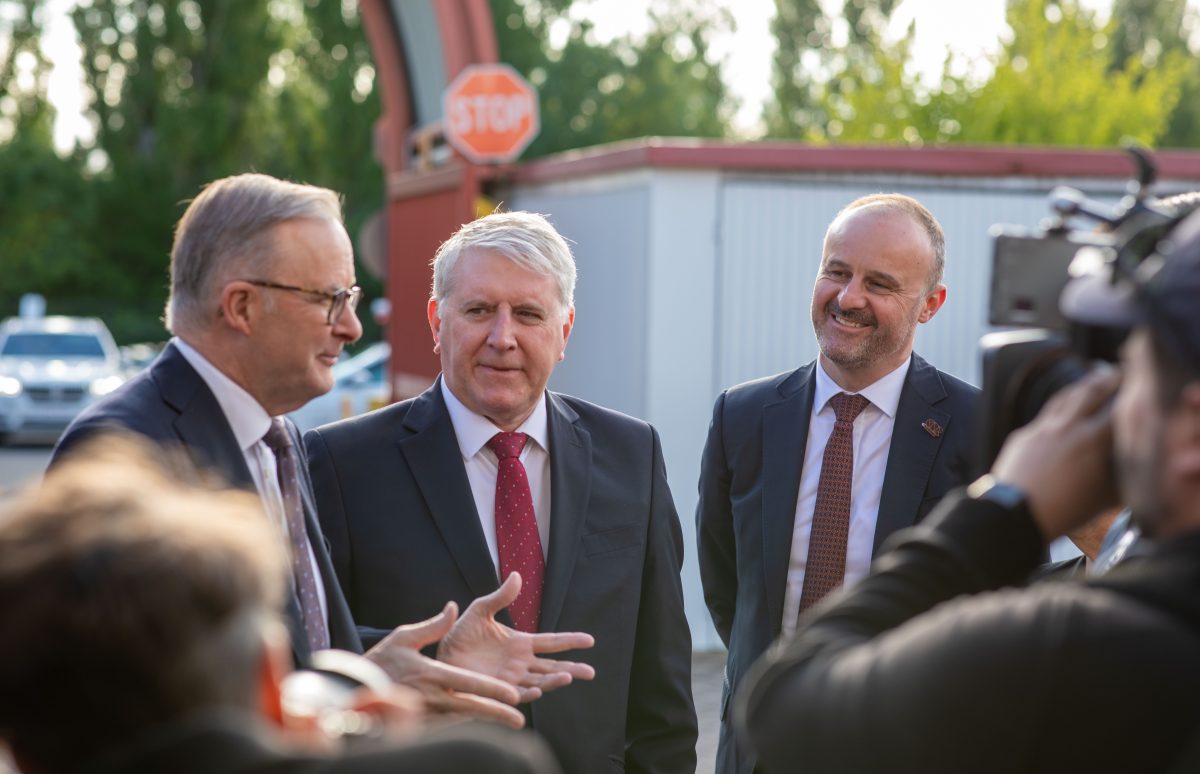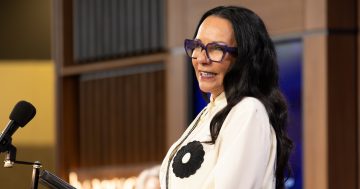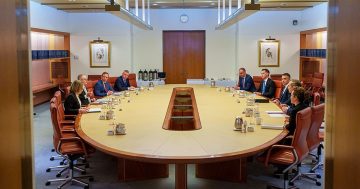
Prime Minister Anthony Albanese and Federal Skills and Training Minister Brendan O’Connor join ACT Chief Minister Andrew Barr at CIT to announce the National Skills Agreement. Photo: Supplied.
For the first time in more than a decade, all state and territory leaders have signed off on a National Skills Agreement (NSA) with the Commonwealth in a bid to boost workforces and transform the Vocational Education and Training (VET) sector.
National Cabinet last night (Monday, 16 October) signed off on the $12.6 billion agreement, which aims to implement reforms to address critical skills needs across the country.
Prime Minister Anthony Albanese said the country needed to train Australians for the jobs of today as well as the jobs of tomorrow.
“This important National Skills Agreement, alongside our very successful Fee-Free TAFE places, will mean more boilermakers, more chefs, more aged-care workers, more childcare workers, and more Australians with the skills that they need, but also the skills that our economy needs,” Mr Albanese said.
Commonwealth money for each state and territory is available under the NSA. If it’s all accessed, it translates to more than $30b in funding.
The backing includes an extra $2.4b in flexible funding for jurisdictions to deliver skills for critical and emerging industries.
Identified priorities include:
- Clean-energy and net-zero transformation of the economy
- Australia’s sovereign capability, including advanced manufacturing skills, national security, food security and construction
- Care and support services
- Ensuring Australia’s digital and technology capability
One major reform is the establishment of a nationally networked TAFE Centres of Excellence, which will involve partnerships between TAFEs, universities, Jobs and Skills councils, and industry.
Some $325m will be used to establish the centres, along with $100m to support, grow and retain the VET workforce. A National TAFE leadership network to promote a “cutting-edge curriculum” will be established at a cost of $155m.
Federal Skills and Training Minister Brendan O’Connor said having TAFE at the heart of the agreement would “kickstart real change”.
“The TAFE sector has endured periods of underfunding, impacts of deregulation, loose rules of VET market entry, a lack of national cohesion and an obsession for competition at the expense of collaboration,” Mr O’Connor said.
“By providing genuine national leadership in partnership with states and territories, we are building a system that is greater than the sum of its parts.
“A high-performing and world-class VET sector is crucial for achieving a fairer society and a stronger economy.”
Other funding areas nationally include:
- $214m for Closing the Gap initiatives to be designed in partnership with First Nations peoples, to be led by them
- $250m to improve VET completion rates, including women and others who face completion challenges
- $142m to improve foundation skills training capacity, quality and accessibility
- $116m to improve VET evidence and data.
Specifically, NSW is set to benefit from more than $3.81b from the Commonwealth, which will be supported by investment from the State Government.
NSW Skills, TAFE and Tertiary Education Minister Steve Whan said the NSA would help to build a “robust and scalable skills force”.
“Over the next five years, we will have the tools to rebuild TAFE, proactively manage skills shortages and support some of our state’s most disadvantaged students,” he said.
“TAFE has experienced years of uncertainty. This agreement will ensure its long-term stability [and] through TAFE we will be able to upskill in-demand workers and maximise opportunities in the skills system.”
The NSA includes $1.055b of additional funding to the state to help support the Minns Government’s promise to invest and rebuild both TAFE NSW and the broader skills sector.
The five-year agreement will take effect from January 2024.
Original article published by Claire Fenwicke on Riotact.











